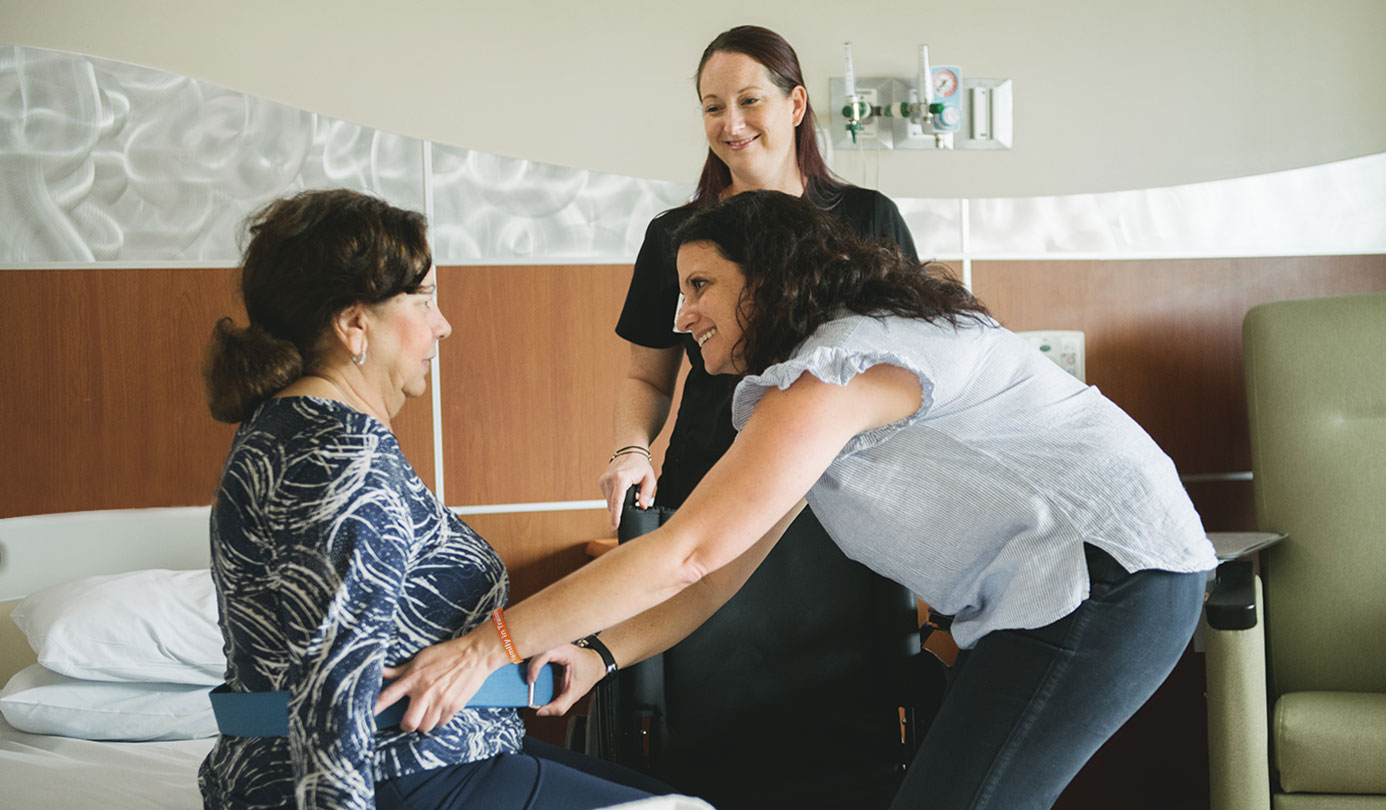Kidney Transplant Resources
At Memorial Transplant Institute, we make it easy for kidney transplant patients and their families to get the resources they need.
Kidney Transplant Resources for Patients and Families
To make an appointment or learn more about our personalized approach to kidney transplantation or kidney donation, call
954-265-7450When you find out that you or someone you love needs a kidney transplant, you need accurate, trustworthy information. At Memorial Transplant Institute, we make it easy for our adult and pediatric patients and their families to get the resources and education they need during this challenging time.
Kidney Transplant Education (English)

Kidney Transplant Education (Spanish)

About Our Care Facility
What is Memorial Transplant Institute?
Memorial Transplant Institute was established in 2017 and offers both heart and kidney transplant programs for children and adults. Memorial Transplant Institute is the only center in Broward County — and one of only two programs in South Florida — to offer kidney transplants to both children and adults.
The institute also includes a robust living donor kidney program that offers potential donors medical expertise and educational support at every point in the kidney donation process.
Where is Memorial Transplant Institute located?
Memorial Transplant Institute is based at Memorial Regional Hospital in Hollywood, Florida. Our living kidney donor office is located at 1150 N. 35th Avenue, Suite 390.
Kidney Transplant Resources
We provide a range of resources to support adult and pediatric kidney transplant recipients and their families during the transplantation process. We offer:
From your first visit through post-surgery follow-up care, we’ll educate you about the transplant process every step of the way. In addition to sharing information in-person, we’ll give you a printed booklet to take home.
Our monthly organ transplantation support group is a place for patients and their families to share questions and concerns and get firsthand feedback from people who have been through a similar experience.
We provide a range of interpreter services for patients and families who do not speak English or are more comfortable speaking in another language. Your transplant coordinator can help you coordinate interpreter services.
Our dedicated transplant team helps match patients with suitable living donors, supporting everyone involved in the kidney donation process. We help patients and donors:
- Understand the kidney donation process
- Talk about kidney donation with friends and loved ones
- Find financial resources to defray living donor-related travel costs
- Answer questions related to health insurance coverage
Learn more about living kidney donation.
In addition to the support services we provide to adult patients, we offer custom support services for children in need of a kidney transplant and their families. Learn more about our family-centered pediatric kidney transplant care offered in collaboration with Joe DiMaggio Children's Hospital.
Children and families benefit from our:
- Child life specialists: Child life specialists use play, pets and music to connect with children and help minimize the psychological impact of a serious medical condition or hospital stay.
- Emotional support: Our pediatric social workers help children and families handle emotional challenges and other issues related to undergoing a kidney transplant.
- Tutoring: A teacher from Broward County Public Schools is available to help children work around extended school absences.
- Child-friendly environment: Joe DiMaggio Children’s Hospital is designed with the needs of children in mind. Our interactive play area has toys and other activities to help keep young patients entertained. There’s also an outdoor playground, and if children get hungry, we offer a healthy, kid-friendly menu.
If you believe your child may benefit from a kidney transplant, we want to hear from you. You can learn more about our personalized pediatric kidney transplant care by calling us anytime at 954-265-7450.
Kidney Transplant FAQs
When you find out that you need a kidney transplant, your mind can fill with questions. Who can donate a kidney to you? What does kidney transplant surgery entail? Here, our specialists answer common questions about the kidney transplant experience at Memorial Transplant Institute.
Living Kidney Donation FAQs
Almost anyone in good health can donate a kidney. In many cases, you can donate a kidney to someone of a different race, sex or blood type, thanks to recent advances in donor matching.
At Memorial Transplant Institute, our thorough donor evaluation process makes sure a donor is in sufficient physical and mental shape to safely donate a kidney.
Many times, people in need of a kidney transplant don't know how to talk to friends and family members about donating a kidney. Our transplant coordinators can help you come up with ways to broach the topic of kidney donation in a way that feels right to you.
Learn more about kidney donation.
We add eligible patients to the United Network for Organ Sharing (UNOS) kidney transplant list, which matches organs from deceased donors with individuals based on the severity of their condition. Because there are more people in need of a kidney than available organs, most people wait at least three years for a deceased donor kidney transplant.
Surgery and Recovery FAQs
In kidney transplant surgery, a surgeon places a healthy kidney (from a living or deceased donor) inside the patient's body. In most cases, a surgeon will leave the failing kidneys in your body. The donor kidney takes over a failing kidney's functions, allowing the recipient the opportunity to live a longer, fuller life.
You can expect to stay in the hospital for at least four days after kidney transplant surgery. Our entire care team will visit you before you go home, at which time they'll review everything you need to know as you embark on your new life after transplant.
Learn more about what to expect from kidney transplant surgery.
Your kidney transplant recovery time will depend on many factors, but you might find yourself enjoying a more active lifestyle as soon as one or two months after transplant surgery. Many people feel a sense of normalcy by three months after the surgery.
Read about what to expect during kidney transplant recovery.
Some people who experience organ rejection after a kidney transplant show no outward symptoms. We monitor patients closely after kidney transplant surgery. We will see you often so that we can evaluate you for early signs of organ rejection.
Common signs of kidney transplant rejection include:
- Low-grade fever
- Feeling extremely tired
- Poor appetite
- Flu like symptoms, such as nausea or body aches
- Swelling of the hands, face or feet
- Pain in the abdominal area
To make an appointment or learn more about our personalized approach to kidney transplantation or kidney donation, call
954-265-7450It matters to you. It matters to us.
Quality and Safety Data for Memorial Healthcare System
Our goal is to provide our patients with the information they need to make informed choices for themselves and their families.
View Quality and SafetyYou have a Right to Know About Prices
We want to give you the information you need to make important healthcare decisions, including the costs of our services.
View PricingMyChart Portal
View test results, schedule follow-up appointments, request prescription refills and more.
Login or Sign-up to MyChart
Patient- and Family-Centered Care
We treat patients and family members as partners in healthcare.




Memorial’s knowledgeable transplant social workers help families gather information and resources as they navigate transplant-related issues.
To speak with one of our compassionate transplant social workers, call 954-265-7450.